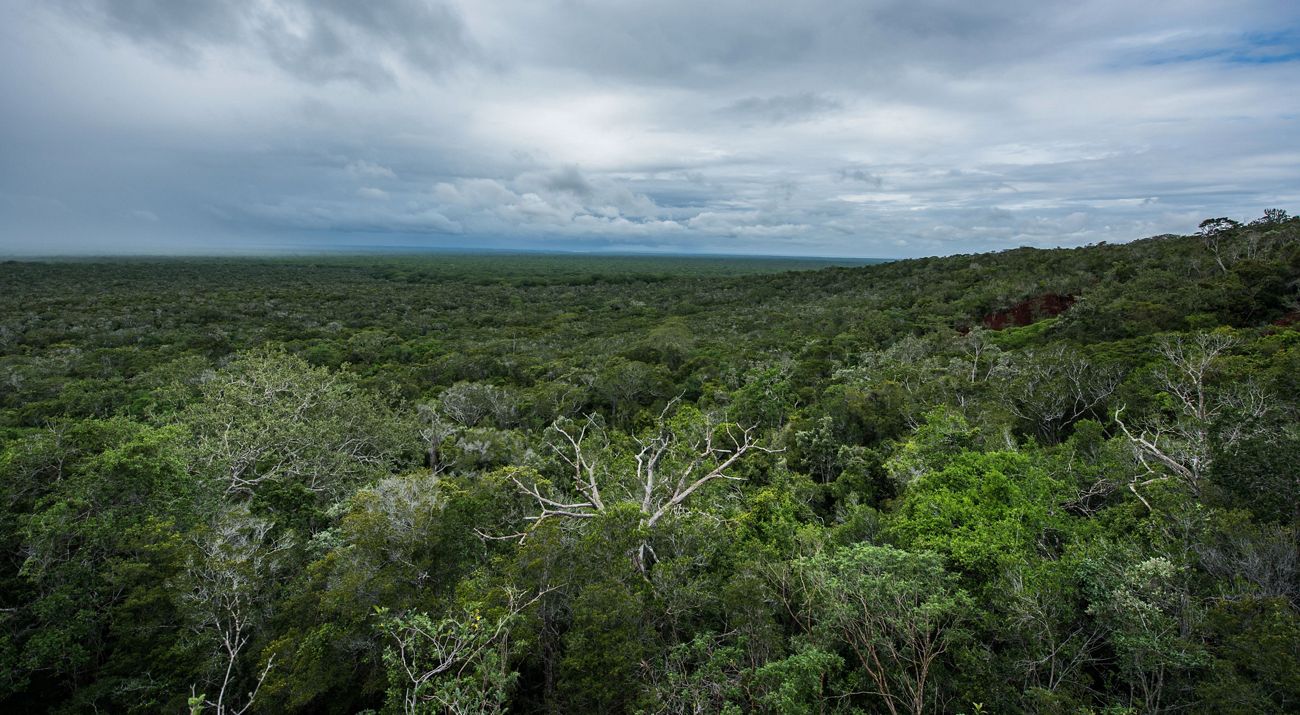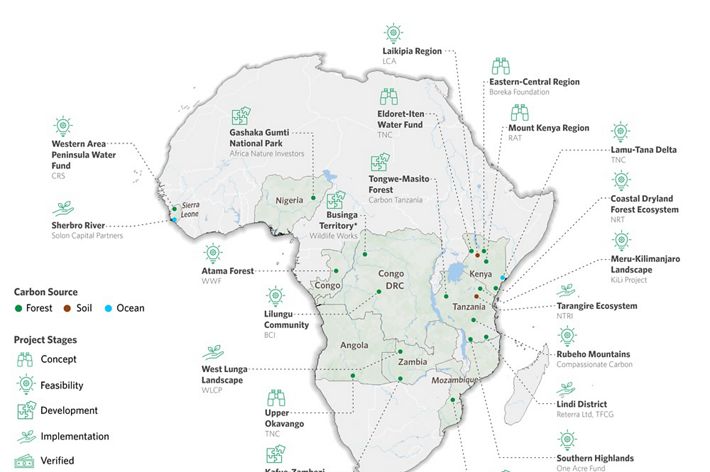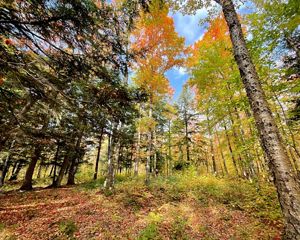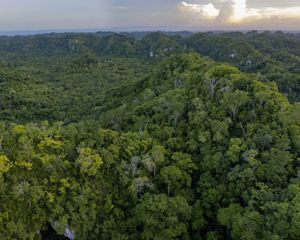Africa is home to 20% of the world’s tropical forests—yet forests are vanishing here faster than anywhere else on Earth.
Much of the loss is due to deforestation to clear land for agriculture, from subsistence farming to large-scale operations. Better protection and restoration of these forest landscapes could avoid or store 1 billion tons of carbon dioxide annually while improving livelihoods for hundreds of thousands of Africans.
To prevent further loss, The Nature Conservancy and our partners established the Africa Forest Carbon Catalyst (AFCC), an incubator designed to accelerate the growth of promising carbon projects by supporting them through the complex and costly stages of development and verification to reach the goal of selling carbon offset credits.
Launched in 2021, the AFCC accomplishes this goal by offering technical support and advice to projects to prepare them for private investment. The AFCC now supports 22 projects in nine countries. By protecting, restoring and better managing vast forests—as well as rangeland soils, ocean ecosystems and peatlands—these projects can help us reach our 2027 goals.
2027 Goals
-
20M
tons of CO2e avoided/stored annually
-
10M
hectares protected, restored or better managed
-
500,000
people benefitting
-
5,000
new green jobs
How the AFCC Works
From the mangroves anchoring East Africa’s coast to the towering rainforests of the Congo Basin, the miombo woodlands of Zambia and the watery peatlands of Angola, the AFCC is on the front lines in the fight for a more sustainable world.
The AFCC project pipeline begins with the concept stage. Here, projects are assessed to determine their potential to reduce climate change impacts. Next, a project goes to the feasibility stage to help determine project viability and what further investment is needed. The third stage is development, where projects engage with the community, get certified with a carbon crediting program and continue to seek out investment. During implementation, workers—from forest scouts to agroforestry farmers—are hired, and the project gets underway. During this stage, a third-party validates the carbon storage impacts of the project and determines areas for improvement. Finally, when a project reaches the verified stage and has proven effective, it can sell carbon credits to generate revenue for the community.
The ultimate goal of these projects is to become financially and technically independent of the AFCC by attracting additional investment and achieving commercial scale-up. This stage is called graduation, and it can be achieved at any point in the journey toward verification.
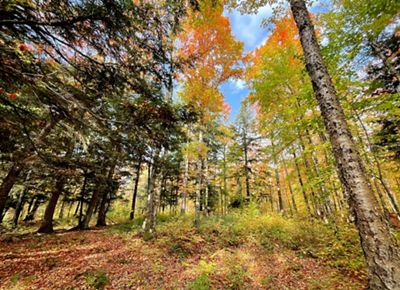
What are carbon markets and how do we work with them?
The Nature Conservancy advances Natural Climate Solutions through many strategies, including high-quality carbon markets that effectively reduce harmful emissions and equitably benefit communities.
Spreading the Word
In communities where trees generate income—from logging or making charcoal—incentives to keep forests standing must be made clear.
Through a grant from the AFCC, Angel Makungu, a carbon analyst for West Lunga Conservation Project, and his teammate, John Muzenzi, are discussing with local communities the potential of earning carbon revenue through forest protection efforts. The pair travel across more than 1 million hectares of forest in Zambia to ensure equitable co-design and local ownership of carbon projects.
Quote: Angel Makungu
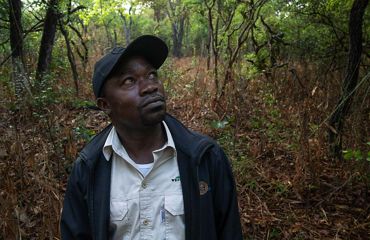
Conservation has become part of me.
Forest Guards
In Zambia’s West Lunga landscape, local guard Agness Chuulu keeps watch over the forest.
Up with the sun, Agness sends her children off to school and heads for the headquarters of the Community Forest Management Group. She makes sure her bicycle is in working order, packs her rations—baked beans, canned fish and biscuits—and sets out on patrol.
Covering about 18 miles (30 kilometers) a day, Agness and other pedaling patrollers are on the lookout for poachers, forest fires, illegal tree cutting and farm fields encroaching on the forest edges—and they note the GPS coordinates of any activity that needs reporting.
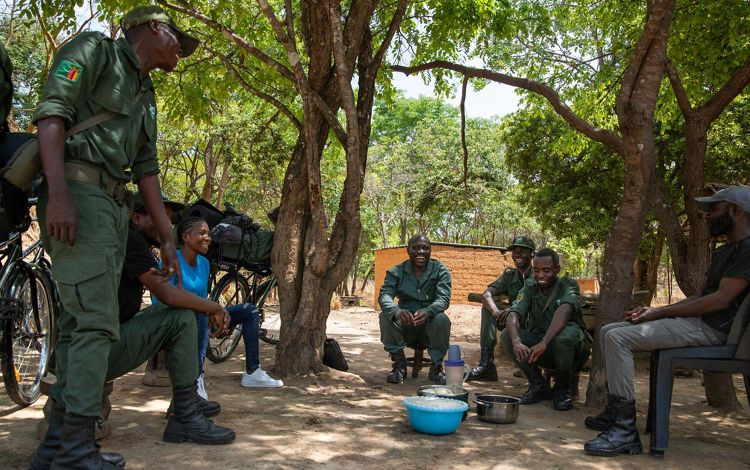
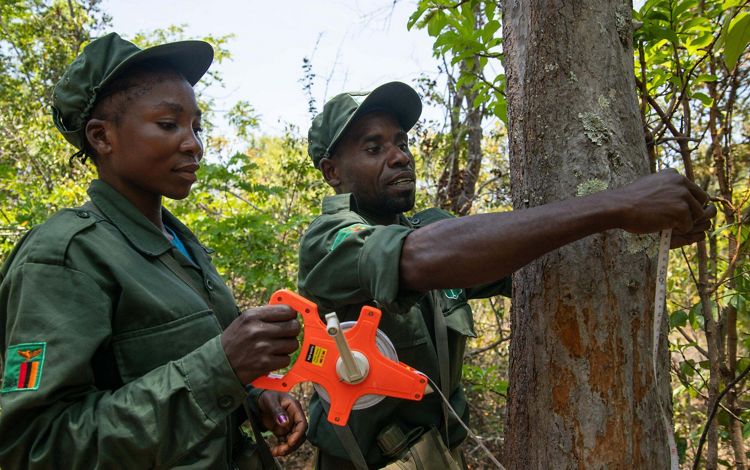
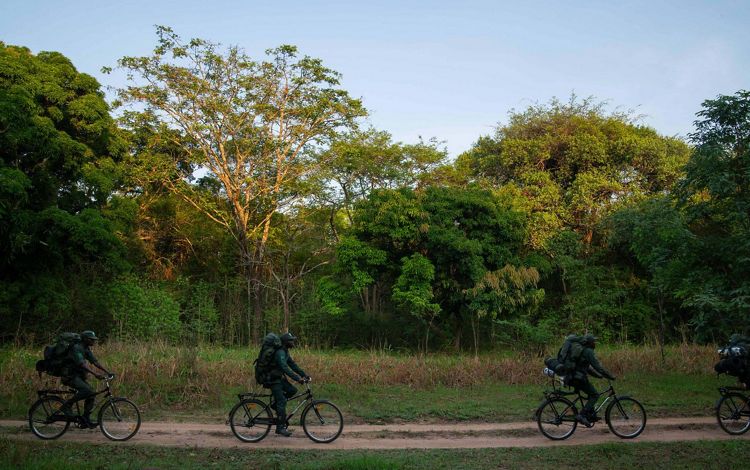
The AFCC-funded, community-led project is already changing lives and inspiring participation. “I have a passion for conservation,” says Agness, 29, who has been working as a guard for just over a year and has used her new income to buy farm tools and support her three children. “I wanted to do something with my life in terms of serving my community."
TNC’s Africa Forest Carbon Catalyst supports our work in the West Lunga landscape through our partner, the West Lunga Conservation Project. The AFCC provides training for carbon monitoring, business development, and bridge funding to cover costs on the path to verification, including salaries and resources for forest guards. The project increases protection for 1.2 million hectares and the wildlife that live here. Once verified, the project has the potential to avoid 328,000 tons of carbon dioxide emissions annually and benefit 20,000 local people.
Other Projects
The 22 projects currently supported by the AFCC are in various stages of progress. Here are a few in the pipeline:
The Eldoret-Iten Water Fund in Kenya aims to reduce forest degradation, implement soil and water conservation in steeply sloped farmland, and promote sustainable practices. The AFCC—working with the Water Fund team and partners—is assessing the viability of a carbon project that would support the expansion of farm-based agroforestry interventions with carbon credits. The project spans about 175,000 hectares, could avoid or store 230,000 tons of CO2e emissions annually and benefit the livelihoods of 15,000 people.
Home to the greatest concentration of mangroves in Sierra Leone, the Sherbro River Estuary is a critical breeding ground for marine life, and the dense forest, rooted to the edge of land and sea, protects communities against severe storms and rising oceans. Mangroves also store four times the carbon of terrestrial forests, making them an important ally in the fight against climate change. AFCC partner West Africa Blue has obtained lease agreements to develop a blue carbon project that will focus on mangrove conservation and restoration. The project will avoid about 1.2 million tons of CO2e emissions annually, protect about 200,000 hectares and benefit 60,000 people.
Animals like elephants and the endangered Rondo dwarf galago depend on the miombo forests in southeastern Tanzania, along with more than a dozen endangered and threatened plants. The AFCC aims to develop a REDD+ community-led forest protection project in the Lindi District to help safeguard this habitat from encroaching farmland. In just two years, the project has progressed from concept to implementation. Today, with TNC partner Reterra, 400 patrol team members in 55 villages have been trained to identify and respond to deforestation incidents. Revenue from carbon credits, expected to begin in 2025, will help villages increase forest protection, improve sustainable farming and fund village development projects, including access to primary school education. The project will avoid about 324,000 tons of CO2e emissions annually, protect at least 350,000 hectares and benefit 155,000 people in 60 villages.
The Global Insights Newsletter
Get our timely takes on some of the biggest challenges facing people and the planet.
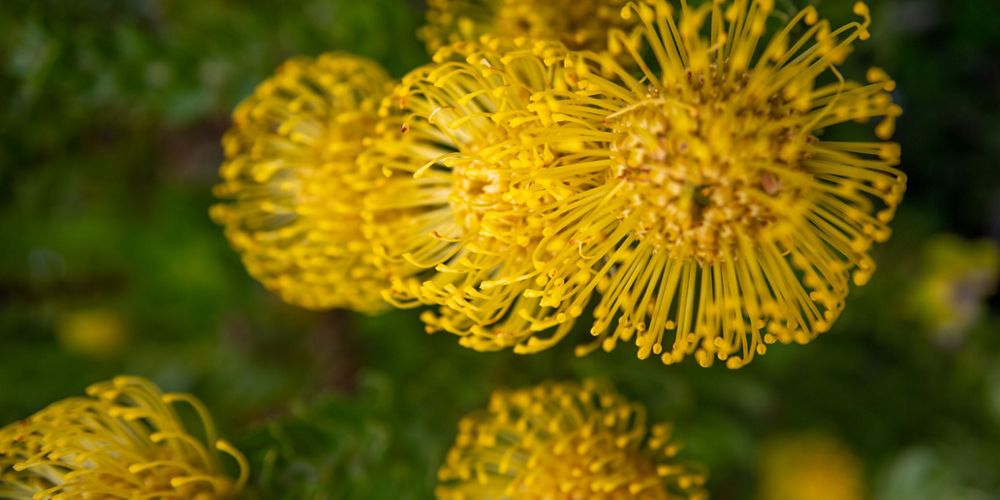
Financing
The AFCC’s role in these projects is to provide the technical expertise and equitable financing needed to keep current projects moving toward verification and long-term success, preparing them to attract private investment so they can graduate from the AFCC.
Projects that graduate no longer receive financial and technical support from the AFCC. This is the goal—for all projects to attract private investment, reach verification and achieve commercial scale-up.
Projects may graduate at different stages in the pipeline—some early in the development process, some closer to verification. Once verified, projects can begin selling carbon credits. To date, three AFCC projects have graduated, making the transition to private support.
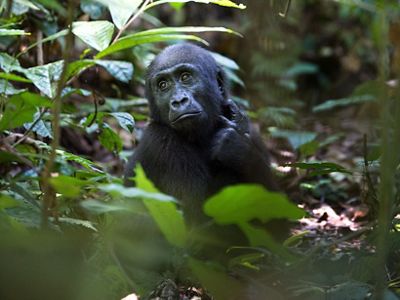
Along with our support of these 22 projects, the AFCC also works to improve the conditions that affect carbon projects across Africa and beyond, helping the world move toward the sweeping, enduring impact needed to confront the climate crisis.
We focus on three areas that help carbon projects grow and thrive:
Market integrity: We work to demystify and strengthen carbon markets, making them more accessible to all.
Smart policy: We provide input on carbon-friendly policies and develop best-practice frameworks designed to promote natural climate solutions by removing implementation bottlenecks, clarifying confusing guidelines and identifying incentives.
Cutting-edge science: We invest in the latest science and technology to improve project monitoring and ensure high-quality outcomes.
Interested in learning more?
Contact Africa Director of Development Abigail Blum (abigail.blum@tnc.org) to learn more about the Africa Forest Carbon Catalyst.
